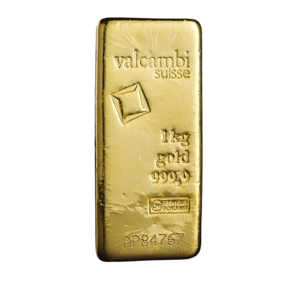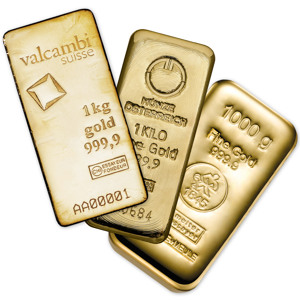Tavex uses cookies to ensure website functionality and improve your user experience. Collecting data from cookies helps us provide the best experience for you, keeps your account secure and allows us to personalise advert content. You can find out more in our cookie policy.
Please select what cookies you allow us to use
Cookies are small files of letters and digits downloaded and saved on your computer or another device (for instance, a mobile phone, a tablet) and saved in your browser while you visit a website. They can be used to track the pages you visit on the website, save the information you enter or remember your preferences such as language settings as long as you’re browsing the website.
| Cookie name | Cookie description | Cookie duration |
|---|---|---|
| tavex_cookie_consent | Stores cookie consent options selected | 60 weeks |
| tavex_customer | Tavex customer ID | 30 days |
| wp-wpml_current_language | Stores selected language | 1 day |
| AWSALB | AWS ALB sticky session cookie | 6 days |
| AWSALBCORS | AWS ALB sticky session cookie | 6 days |
| NO_CACHE | Used to disable page caching | 1 day |
| PHPSESSID | Identifier for PHP session | Session |
| latest_news | Helps to keep notifications relevant by storing the latest news shown | 29 days |
| latest_news_flash | Helps to keep notifications relevant by storing the latest news shown | 29 days |
| tavex_recently_viewed_products | List of recently viewed products | 1 day |
| tavex_compare_amount | Number of items in product comparison view | 1 day |
| Cookie name | Cookie description | Cookie duration |
|---|---|---|
| chart-widget-tab-*-*-* | Remembers last chart options (i.e currency, time period, etc) | 29 days |
| archive_layout | Stores selected product layout on category pages | 1 day |
| Cookie name | Cookie description | Cookie duration |
|---|---|---|
| cartstack.com-* | Used for tracking abandoned shopping carts | 1 year |
| _omappvp | Used by OptinMonster for determining new vs. returning visitors. Expires in 11 years | 11 years |
| _omappvs | Used by OptinMonster for determining when a new visitor becomes a returning visitor | Session |
| om* | Used by OptinMonster to track interactions with campaigns | Persistent |
| Cookie name | Cookie description | Cookie duration |
|---|---|---|
| _ga | Used to distinguish users | 2 years |
| _gid | Used to distinguish users | 24 hours |
| _ga_* | Used to persist session state | 2 years |
| _gac_* | Contains campaign related information | 90 days |
| _gat_gtag_* | Used to throttle request rate | 1 minute |
| _fbc | Facebook advertisement cookie | 2 years |
| _fbp | Facebook cookie for distinguishing unique users | 2 years |
The Etymology of the Word Gold

Gold has long captivated human imagination. From ancient civilisations to modern times, gold has been a symbol of wealth, power, and beauty. But have you ever wondered where the word “gold” comes from?
While it may seem like just another term, the etymology of the word carries deep historical significance, tracing back to the very roots of human civilisation.
What is Etymology?
Definition of Etymology
Etymology is the study of the origin of words and how their meanings and structures have evolved over time
By understanding the etymology of a word, we gain insight into how cultures interacted, what they valued, and how languages transformed as they spread across the world.
Why the Origin of Words Matter
Understanding where a word comes from can give us a glimpse into the values of the society that coined it. In the case of “gold,” its evolution reflects the high esteem in which various cultures held this precious metal.
The Root of the Word “Gold”

The word “gold” can be traced back to the Proto-Indo-European (PIE) root ghel, which means “to shine” or “yellow.” This root has given rise to words in multiple languages that refer to brightness or yellowish colour. As gold is distinctively yellow and has a unique shine, the association is quite fitting.
Origins in Proto-Indo-European Language
The PIE root ghel is believed to be the source not only of the English word “gold” but also of words in other Indo-European languages that describe similar colors or shiny objects. This root is fundamental to understanding the linguistic journey that led to the modern term.
Gold in Different Languages

The evolution of the word “gold” can be seen across many different languages, reflecting both cultural and linguistic changes throughout history.
1) Old English: “Geolu” (Yellow)
In Old English, the word for gold was geolu, which directly translates to “yellow.” This connection reinforces the link between the color of gold and its name. Over time, this term evolved, eventually becoming “gold.”
2) Latin: “Aurum”
In Latin, the word for gold is aurum, which is where the chemical symbol for gold, Au, comes from. The Latin word is thought to come from an earlier Proto-Italic root.
3) Sanskrit: “Hiranya”
In ancient Sanskrit, the word for gold was hiranya. This word was often used in sacred texts, reflecting the spiritual and religious importance of gold in ancient Indian culture.
Cultural Importance Reflected in Language
Throughout history, gold has been more than just a metal; it has symbolised power, wealth, and status. The linguistic development of the word reflects this, with many cultures tying their term for gold to ideas of brilliance, beauty, and divinity.
Many ancient civilisations used gold in religious ceremonies, temples, and artifacts. In many languages, the word for gold became synonymous with purity, divinity, and eternal value.
Historical Development of the Word “Gold”
The journey of the word “gold” is fascinating, as it highlights the interconnectedness of cultures through trade, conquest, and shared values.
From Ancient Times to Modern English
As people migrated and traded, words evolved
The word ghel gave rise to words for gold in numerous Indo-European languages, each adapting it to their own pronunciation and cultural context.
How Trade Influenced the Word’s Spread
Gold was one of the most widely traded commodities in the ancient world, and with trade came the exchange of languages and words. As a result, the term for gold evolved differently in various regions.
Proto-Germanic Influence
The Proto-Germanic term gulþą influenced many Germanic languages, including Old English. This root is the precursor to the modern word “gold” in English.
Comparative Examples in Other Germanic Languages
The word for gold in Old High German was gold, while in Dutch, it is goud. These variations show the subtle shifts that occurred as languages developed over time.
How “Gold” Evolved Over Time

Variations in Spelling and Pronunciation
In early texts, the word for gold was spelled in various ways, including goold and guld. Over time, English standardized its spelling, though regional variations in pronunciation remain.
Regional Variations Across Europe
In Romance languages, the word for gold tends to derive from the Latin aurum, as seen in Spanish (oro) and French (or). In contrast, Germanic languages like English retained the earlier Proto-Germanic roots.
The Scientific Symbol of Gold: Au
The symbol Au for gold comes from the Latin word aurum. The decision to use Latin names for elements reflects the influence of ancient Rome on modern scientific nomenclature.
Why the Symbol Represents Gold in the Periodic Table
The use of the Latin root for gold in the periodic table demonstrates how historical languages continue to impact modern scientific terms.
Gold in Mythology and Folklore

Myths Surrounding Gold Across Cultures
Many cultures have myths involving gold, often symbolising greed or divine favour. For example, the Greek myth of King Midas, who turned everything he touched into gold, is a powerful cautionary tale about the dangers of greed.
The Midas Touch: A Classic Example
The story of King Midas, whose touch turned everything to gold, highlights gold’s role as a symbol of both wealth and the potential dangers of unchecked greed.
The Symbolism of Gold in Modern Society

Today, gold continues to hold immense value, not only in terms of currency but also as a symbol of love, beauty, and success. Gold jewellery, in particular, remains a popular way to display wealth and status.
Gold’s rarity, beauty, and resistance to tarnish make it an enduring symbol of wealth and stability in a constantly changing world.
The Linguistic Legacy of Gold
How the Word Has Influenced Other Words
The word “gold” has influenced many phrases and idioms, such as “golden opportunity” or “heart of gold,” reflecting its cultural importance.
Expressions Derived from the Word “Gold”
Gold’s association with value is evident in many common expressions, such as “worth its weight in gold” and “gold standard,” indicating excellence.
Conclusion
Gold, both as a word and a material, carries a weight of significance that has transcended time, language, and culture. Its linguistic evolution from ancient roots to modern English mirrors humanity’s enduring fascination with this precious metal.
Understanding the etymology of “gold” offers us a deeper appreciation for its role in shaping not just our economies but also our values, beliefs, and expressions.
FAQs
What is the oldest recorded use of the word “gold”?
The earliest recorded use of a word for gold dates back to Proto-Indo-European times, where the root ghel was used to describe shining or yellow objects.
Why is gold called “Aurum” in Latin?
The Latin word aurum means “glow of dawn” and was likely chosen to reflect gold’s brilliant, radiant appearance.
How has the word “gold” influenced other words?
Many expressions, such as “golden opportunity” or “fool’s gold,” have been derived from the word “gold,” often symbolizing value, excellence, or deception.
What languages have influenced the English word for gold?
The English word “gold” has roots in Proto-Indo-European and Proto-Germanic languages, with influences from Latin and Old English.
Why is gold still such a powerful symbol today?
Gold’s rarity, beauty, and historical significance as a store of wealth continue to make it a powerful symbol of prosperity and success.


















